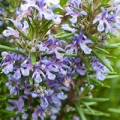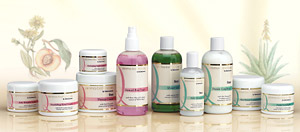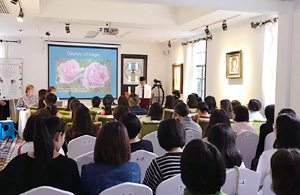Essential Oils Reduce Stress & Blood Pressure – Study
 According to many aromatherapy books, the antidepressant and calming effects of certain essential oils can help to treat or even prevent high blood pressure, known medically as hypertension. The theory has always been that using essential oils to reduce stress and invoke a state of relaxation, also lowers blood pressure in the process.
According to many aromatherapy books, the antidepressant and calming effects of certain essential oils can help to treat or even prevent high blood pressure, known medically as hypertension. The theory has always been that using essential oils to reduce stress and invoke a state of relaxation, also lowers blood pressure in the process.
But for as long as I can remember there has been an argument raging regarding the efficacy of using essential oils to control blood pressure, despite positive results experienced by thousands of people suffering from high blood pressure who have used the services of qualified aromatherapists. Quite rightly, skeptics and the medical profession alike demand credible evidence to support these claims.
This study was conducted at the Department of Nursing in Korea in 2006 and supports the claims that aromatherapists have been making for over 30 years, showing that inhaled lavender, ylang ylang, and bergamot essential oils were measured and shown statistically to lower blood pressure.
Whilst the results of this this small study are relatively modest, nonetheless it does add to the body of evidence supporting the efficacy of essential oils in the treatment of hypertension.
********************************************************
The effects of the inhalation method using essential oils on blood pressure and stress responses of clients with essential hypertension
The purpose of this study was to identify the effects of aromatherapy on blood pressure and stress responses of clients with essential hypertension.
Method
There were fifty-two subjects divided into an essential oil group, placebo group, and control group by random assignment. The application of aromatherapy was the inhalation method of blending oils with lavender, ylang ylang, and bergamot once daily for 4 weeks.
To evaluate the effects of aromatherapy, blood pressure and pulse were measured two times a week and serum cortisol levels, catecholamine levels, subjective stress, and state anxiety were measured before and after treatment in the three groups. Data was analyzed by repeated measures of ANOVA, one-way ANOVA, and chi(2)-test using the SPSS 10.0 program.
Results
The blood pressure, pulse, subjective stress, state anxiety, and serum cortisol levels among the three groups were significantly statistically different. The differences of catecholamine among the three groups were not significant statistically.
Conclusion
The results suggest that the inhalation method using essential oils can be considered an effective nursing intervention that reduces psychological stress responses and serum cortisol levels, as well as the blood pressure of clients with essential hypertension.
Copyright © Quinessence Aromatherapy Ltd 2013. Written by Geoff Lyth
Abstract Copyright © 2006; Hwang JH, Taehan Kanho Hakhoe Chi.
Department of Nursing, Geochang Provincial College, Geochang-gun, Gyungnam, Korea. PMID:17211115































